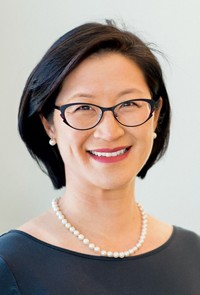Advertisement
Grab your lab coat. Let's get started
Welcome!
Welcome!
Create an account below to get 6 C&EN articles per month, receive newsletters and more - all free.
It seems this is your first time logging in online. Please enter the following information to continue.
As an ACS member you automatically get access to this site. All we need is few more details to create your reading experience.
Not you? Sign in with a different account.
Not you? Sign in with a different account.
ERROR 1
ERROR 1
ERROR 2
ERROR 2
ERROR 2
ERROR 2
ERROR 2
Password and Confirm password must match.
If you have an ACS member number, please enter it here so we can link this account to your membership. (optional)
ERROR 2
ACS values your privacy. By submitting your information, you are gaining access to C&EN and subscribing to our weekly newsletter. We use the information you provide to make your reading experience better, and we will never sell your data to third party members.
Policy
Members' Right To Select Candidates By Petition
by E. Ann Nalley, ACS Immediate Past-President
December 24, 2007
| A version of this story appeared in
Volume 85, Issue 52

AS I WRITE my last comment as a member of the ACS presidential succession, I want to thank you for allowing me to serve as your president. I have always felt that I was the members' president since I was nominated through the petition route. I could have entitled this comment, "If it's not broke why do we need to fix it?" For I believe that the petition process works and it works for the benefit of the members. Even the First Amendment of the U.S. Constitution specifically addresses the citizen's right to petition. Why should ACS be different? We have a process in place, which allows members to choose candidates for the board by petition, but unfortunately there are some who would like to take this right away from you.
Nomination by petition is a sacrosanct provision of any democratic organization. Why is this important in our society? While in local sections and divisions frequently it is difficult to find candidates for various offices, this is not the case for the ACS Board of Directors. The 15 members of the board are the ultimate power in ACS. Its decision greatly affects the present and future direction of our society. There are many interested persons who want to get involved to steer the society in the right direction.
Forty years ago, when our profession was booming, the board's task was easy. There were no major problems and the staff was able to handle most issues. The board's actions were often considered as simply rubberstamping decisions that were made by staff. As the society's operations became more sophisticated and complicated, the role of the board in governance became more important. It became important for all entities to be represented in the governance process. Although the process of nomination by the society's Committee on Nominations & Elections (N&E) has worked well, it is impossible for them to know all of the members' views and needs. In the '70s, as employment and other professional issues became important to members, representation on the board by individuals who wanted the society to pay more attention to professional issues became important.
Members sought the petition route as a way to bring broader issues before the board. And the first petition candidates for the ACS presidency, Alan C. Nixon and Bernie Friedman, were elected to bring a new idea of professionalism to the ACS Board. Even then, there were those who resisted the petition process. Board members who recognized the need for change were in the minority. The group, sometimes referred to as the Old Guard, did not want a change. Instead of recognizing the election of the petition candidates as a process, which resulted from nomination and election by the members, this group wanted to make the petition process more difficult by raising the required number of signatures. The number was increased by six times from 150 to 1,000. Later, when some of the Old Guard wanted to nominate their own candidates by the petition route, they realized 1,000 signatures were not that easy to gather, and the number was lowered to 300.
Over the years, candidates who ran by petition experienced prejudice by N&E and were not invited to run in future elections by N&E even though they lost by a few votes. I can attest to this since I was nominated four times by petition, twice to the position as district director and twice as a candidate for ACS president. The prejudice went even further. When one director who was nominated and elected through the regular process ran by petition for the presidency during his term and narrowly lost, he was not renominated for his incumbent seat. When then-president Clayton F. Callis was asked by the councilors to investigate the situation, N&E simply claimed that that its processes were confidential. Since that time, a dozen petition candidates have been elected to the board. Presently, six members of the board were first elected to the board as petition candidates.
There is nothing wrong with petition candidates, except that they are winning! Lately, there is a renewed effort to minimize the "danger" that petition candidates represent (C&EN, July 30, page 60). The plan is not only to raise the number of signatures to the aborted level of the '70s, but also to thwart the petition candidates further by making the ACS Council the final arbiter as to whether a candidate nominated by petition actually should be on the ballot before the electorate can make a decision. I have been on the council for 25 years. Its role is highly important and valuable. But I believe the members have the right to nominate a candidate and should not be screened by council.
Democracy is the uncompromisable cornerstone of our, the members', society. I say again, if it's not broke why fix it? The process of petitioning for an ACS Board position is working well. We have a strong board of directors who is willing to listen to the members and is not afraid to take a stand. The ACS Board operates at the highest and most ethical level of any board of any organization I know of. Let's preserve the petition process as a means of increasing diversity and electing strong independent thinkers to our board.
Views expressed on this page are those of the author and not necessarily those of ACS.





Join the conversation
Contact the reporter
Submit a Letter to the Editor for publication
Engage with us on Twitter